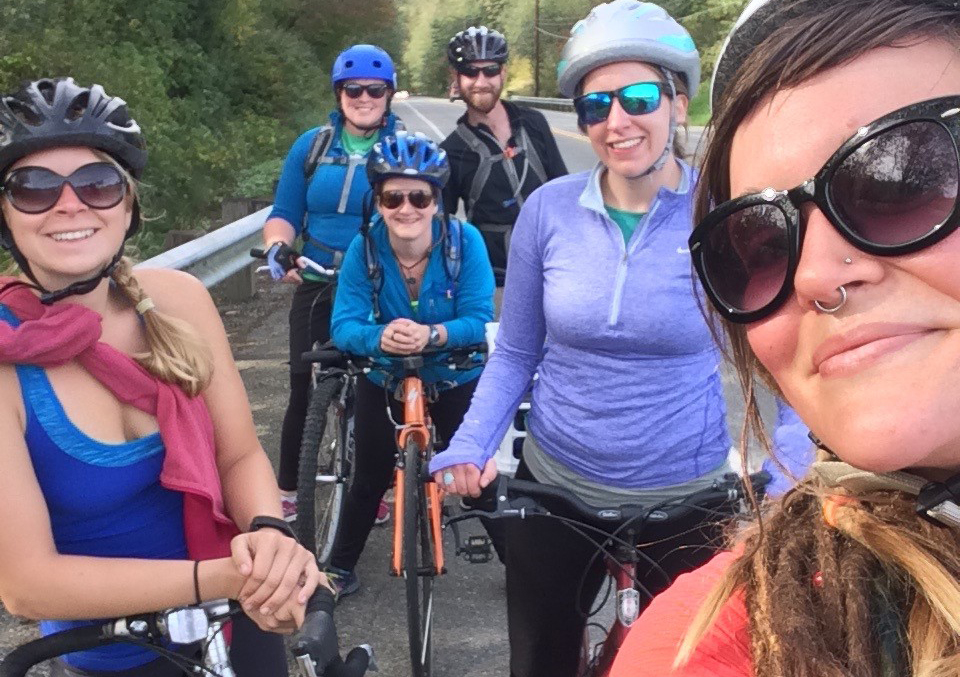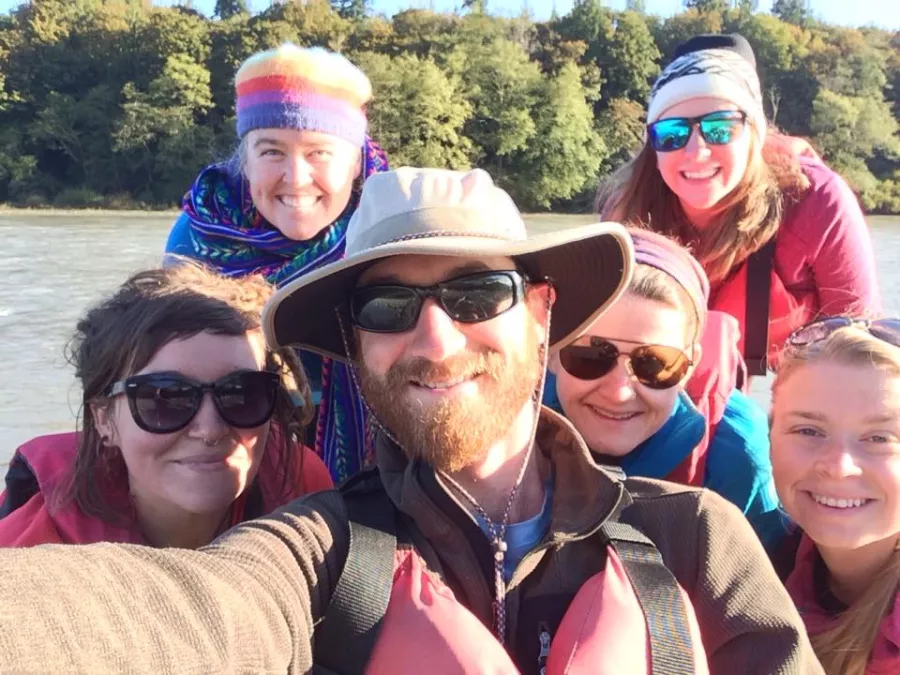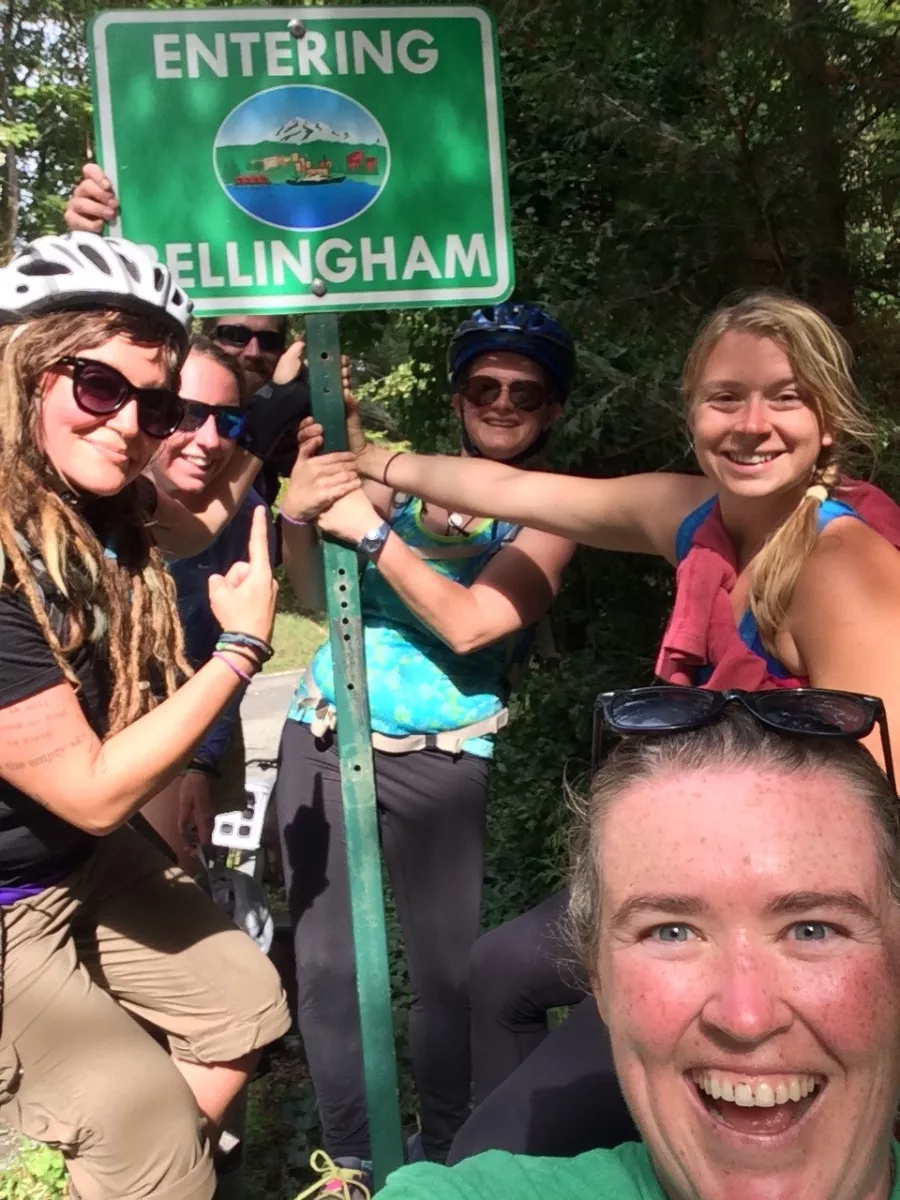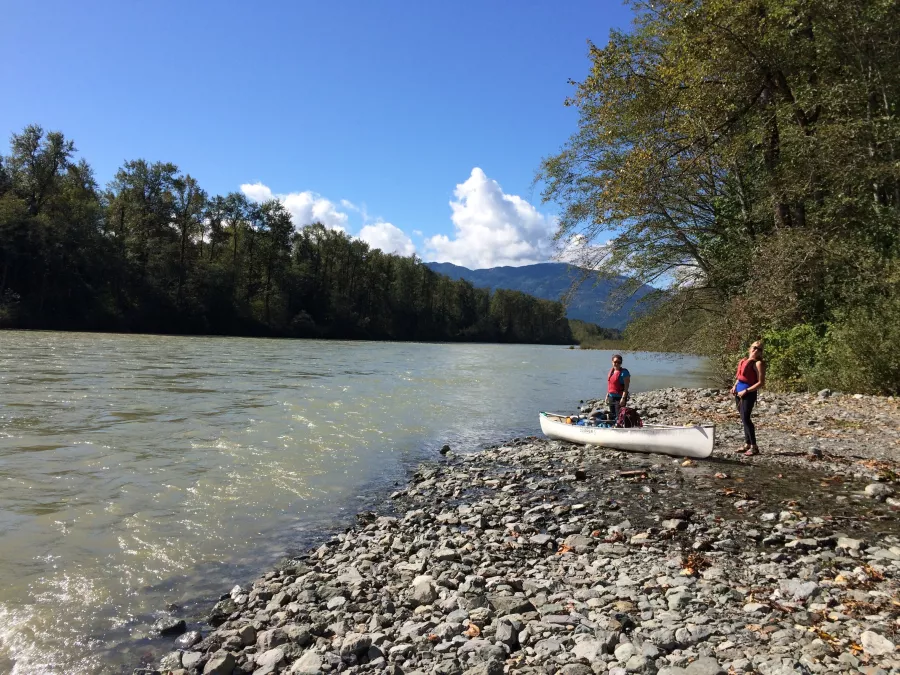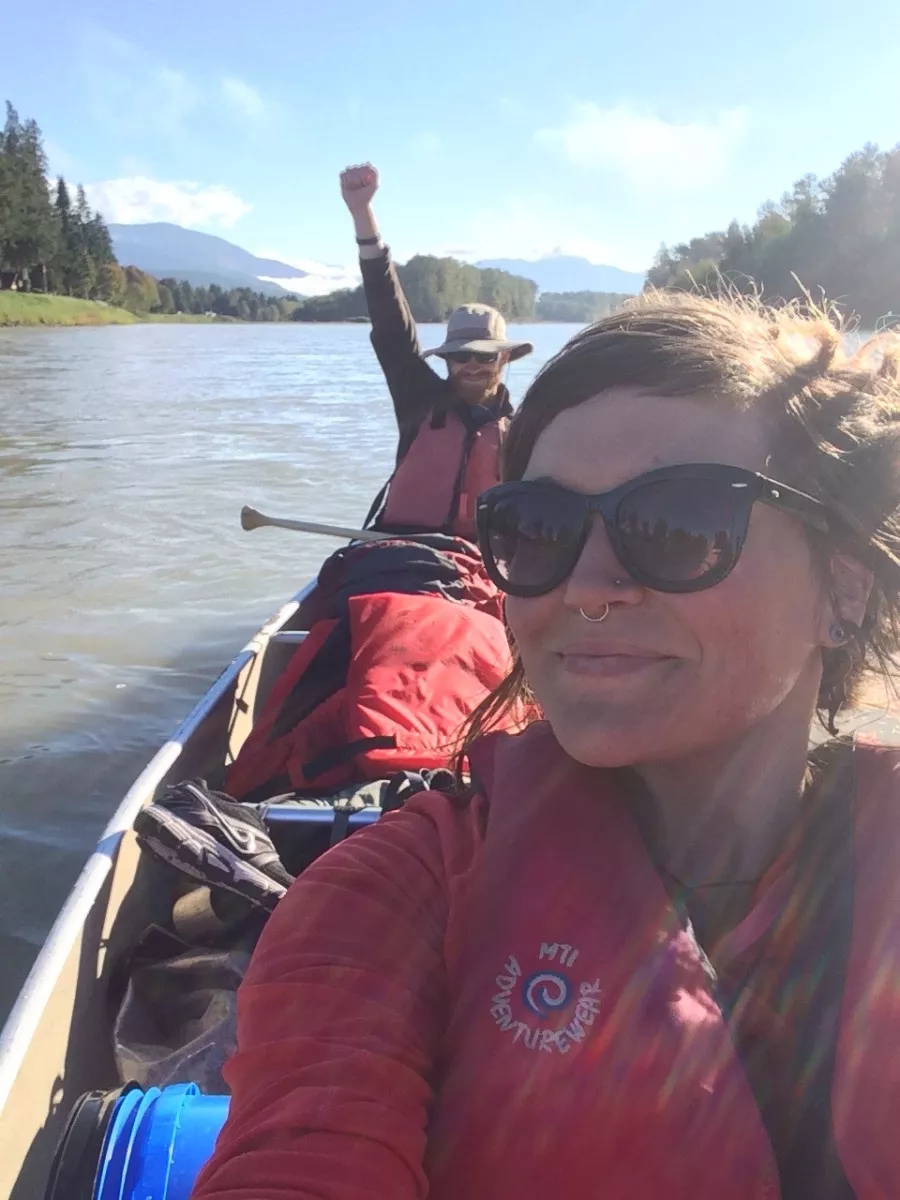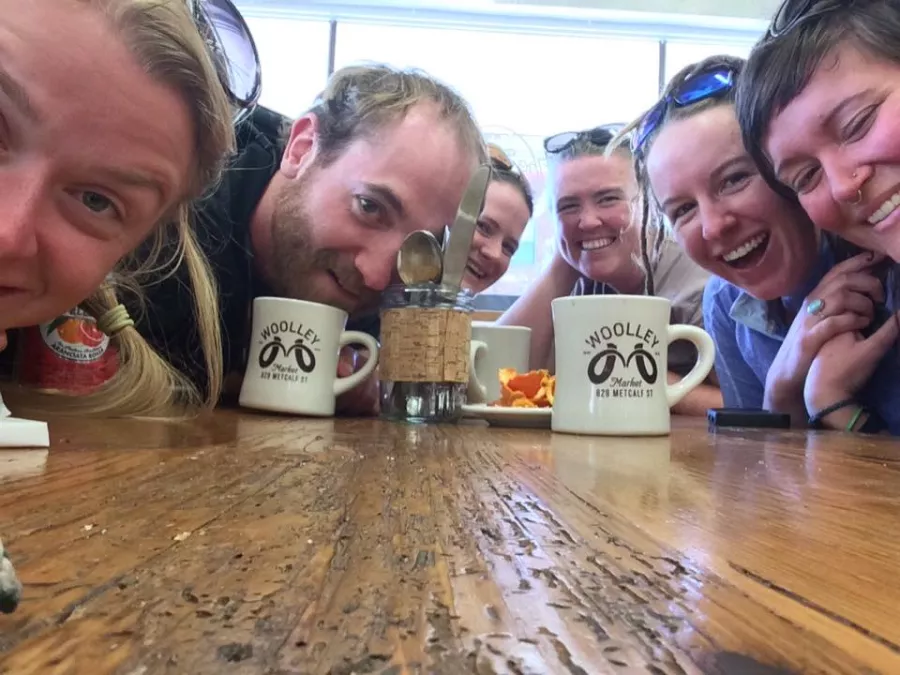After spending a year ensconced in the North Cascades, students in Western’s master’s program in Environmental Education move to Bellingham to complete their degrees on campus at Huxley College of the Environment.
For most students, this means packing their cars and hitting the highway for a two-hour drive. But right before fall quarter 2015, seven students turned the “Transition Trek” into a 90-mile, three-day bonding adventure by canoe and bike.
The group had spent the year at the North Cascades Institute’s Environmental Learning Center on the shores of Diablo Lake, studying the region’s ecosystem, working at the institute’s Mountain School youth program and studying nonprofit administration.
“It was time to leave our quiet home and enter the hustle and bustle of city life,” wrote Mike Rosekrans (‘16, M.Ed., Environmental Education) in the North Cascades Institute’s blog, “Chattermarks.” “What better way to do it than canoeing, biking and camping together?”
The grad students paddled tandem canoes 60 miles down the Skagit River, spying salmon, osprey, heron, elk and at least one coyote. Midway, they camped on a rocky island and watched alpenglow illuminate Sauk Mountain as the fog lifted the next morning.
After pulling ashore at Sedro-Woolley, the group began a 30- mile bike ride up Old Highway 99 and through the Chuckanuts. This time, they spent the night at a KOA campground and fell asleep to the sound of traffic on Interstate 5.
The last day, the group pedaled north along Lake Samish for a backyard dinner party at Rosekrans’ house in Fairhaven to celebrate the final quarter before graduation.
“We don’t know where we will be in 10 months, a year, a decade and so on,” wrote Rosekrans. “Some of us may stay upon the coast, some of us might drift to the desert and some of us, like the water molecules in the ocean, may be taken upon the rays of sunshine and wind back up in the mountains.”
Rosekrans has a summer job lined up as a naturalist at Denali National Park and then hopes to find a job as a curriculum coordinator or naturalist in Washington.
